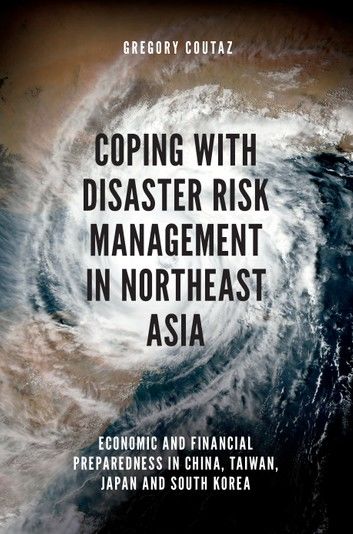| FindBook |
有 1 項符合
Coping with Disaster Risk Management in Northeast Asia的圖書 |
 |
Coping with Disaster Risk Management in Northeast Asia 作者:Gregory Coutaz 出版社:Emerald Publishing Limited 出版日期:2018-10-31 語言:英文 |
| 圖書館借閱 |
| 國家圖書館 | 全國圖書書目資訊網 | 國立公共資訊圖書館 | 電子書服務平台 | MetaCat 跨館整合查詢 |
| 臺北市立圖書館 | 新北市立圖書館 | 基隆市公共圖書館 | 桃園市立圖書館 | 新竹縣公共圖書館 |
| 苗栗縣立圖書館 | 臺中市立圖書館 | 彰化縣公共圖書館 | 南投縣文化局 | 雲林縣公共圖書館 |
| 嘉義縣圖書館 | 臺南市立圖書館 | 高雄市立圖書館 | 屏東縣公共圖書館 | 宜蘭縣公共圖書館 |
| 花蓮縣文化局 | 臺東縣文化處 |
|
|
Disaster risk management is of increasing significance in today’s world. Every year, natural disasters cause tens of thousands of deaths and tens of billions of dollars’ worth of losses. Northeast Asia holds a high propensity for natural disasters, including earthquakes, tsunamis, typhoons, floods and landslides. Countries in the region have a long history of natural disasters that have devastated populations, cities and their heritage. Restoring livelihoods and rebuilding social and economic infrastructures requires adequate political actions and financial resources, necessitating the implementation of a comprehensive strategy for the management of catastrophe risks.
Coping with Disaster: Risk Management in Northeast Asia provides an examination of the disaster risk management approaches and financing practices adopted in China, Taiwan, Japan and South Korea. The objective of this book is to provide the necessary information on hazards, exposures and vulnerabilities to assist policy development design to increase governmental preparedness for catastrophe risks. It addresses the traditional aspects of disaster risk management, but goes further to focus on the measures of financial protection required to secure post-disaster resources and strengthen budgetary discipline.
Written in an accessible and comprehensible manner, the book will appeal to a wide audience, but is of special interest to policy-makers, public officials, insurance managers and students eager to learn more about disaster risk management in one of the most exposed regions in the world.
|







![塔木德:猶太人的致富聖經[修訂版]:1000多年來帶領猶太人快速累積財富的神祕經典 塔木德:猶太人的致富聖經[修訂版]:1000多年來帶領猶太人快速累積財富的神祕經典](https://media.taaze.tw/showLargeImage.html?sc=11100697818)



